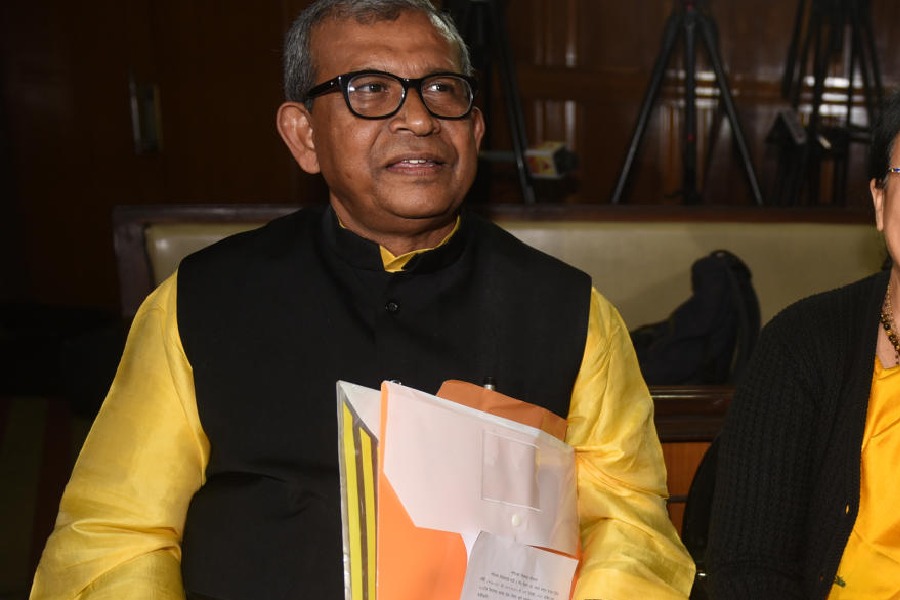The Bengal government will soon convene a meeting with units that are allegedly manufacturing thin plastic bags that are banned across the state, environment minister Manas Bhunia said on Monday.
“Recently, we got a list of 60 units producing illegal plastic carry bags in Bengal. I have asked the PCB (state pollution control board) to inquire. I am asking my principal secretary to inquire about the units and organise a meeting with them. We will first ask them to opt for legal production as the livelihood of people is involved. If they do not comply, they have to face the music,” Bhunia said at a World Environment Day programme.
“We are not working adequately. Only meetings and seminars won’t do. We need to act. Often I find our actions are superficial,” he said.
Environmental activists said the state government had fallen woefully short in curbing the use of plastic bags.
Kolkata mayor Firhad Hakim recently spoke about the need to stop the manufacture of these plastic bags.
According to the law, the minimum thickness of a plastic carry bag should be 120 micron. The act has fines and other penal provisions for users, shop-owners, hoarders and manufacturers found violating the rule.
“We have received a communication with a list of 60 such illegal units and are inquiring about them,” said an environment department official.
State PCB member secretary Rajesh Kumar said the board had created a system to reward a person for passing on information about units producing banned plastic bags.
“On June 27, 2022, the government had issued a notification banning all plastic carry bags less than 120 microns in thickness from 2023. The onus of implementation is on the municipal affairs department, environment department, pollution control board, panchayat and police. But there is hardly any action on the ground. Several government notifications have been issued to control plastic pollution since 1999, but there has hardly been any change,” said Biswajit Mukherjee, former PCB chief law officer.
Mukherjee said unless the government developed alternatives to plastic manufacturing, the menace would continue. “Both state and Union governments should take the initiative to rejuvenate jute mills. Self-help groups should also be involved,” he said.
In 2000, a plastic bag had to be at least 20 micron thick. Over the last two decades, the norm has been tightened but violation has remained rampant.
“You still find the thinnest plastic carry bags in the market,” an environmentalist said at Monday’s programme.
“We may have a slogan that says ‘Beat the plastic’ this year, but plastic has so far beaten us hands down,” he said.
